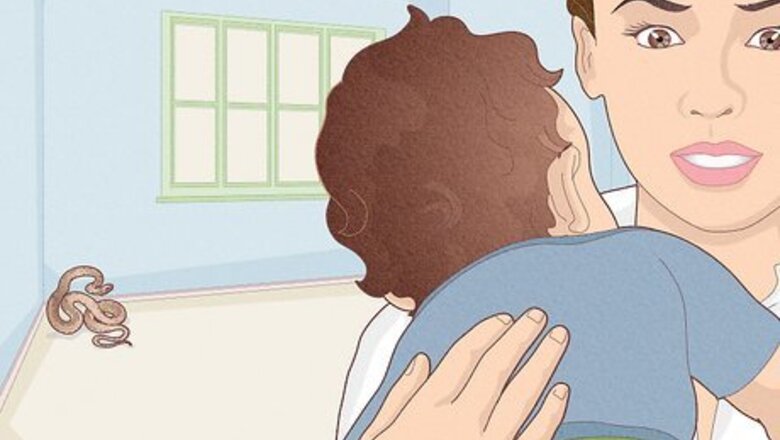
views
What do you do if you see a snake in your house?
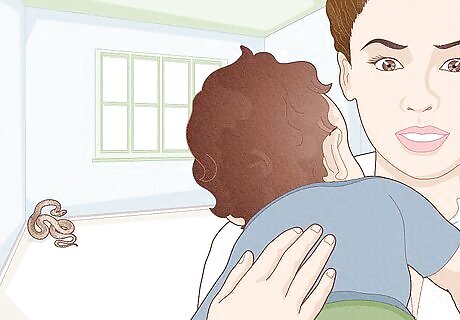
Clear animals or young children from the area. Because of their size, your pets and children are more at risk if bitten than a fully-grown adult. Their movements also tend to be more unpredictable and they are more likely to agitate the snake. Calmly move them away from the area, so you can safely deal with the snake on your own. If you have a child that gets bitten, call emergency services immediately. Even if the snake is not venomous, it’s better to be safe than sorry. If you suspect that your pet has been bitten, take them to a local veterinarian or call Poison Control. There may be some redness, swelling, or bruising on your animal. If so, you should act quickly, as they may be at risk of further harm or even death.
Remain calm and don’t provoke the snake. A snake won't normally attack you unless it feels threatened by you, so keep your cool. Don’t try to attack a snake with a broom or some other object or you risk provoking it. You are a larger predator and the snake should keep to itself if you don't bother it. If you see that the snake has coiled itself up and opened its mouth wide, then you know it sees you as a threat. Step away slowly to avoid any further risk. Remember that snakes help control rodent and insect populations. So, while it's not comforting to see one in your home, you really don't want to kill it, as it does help control pest populations in your area.
How do you get rid of snakes in a house?
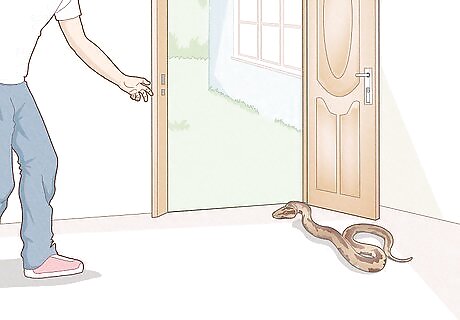
Create a safe distance between you and the snake. Even if you have the smallest suspicion that you have a venomous snake on your property, avoid getting too close. You might not want to leave the snake completely alone, as it could move to another place in your home without you knowing where, but keep your distance. If the snake is mobile, however, and you are worried that your presence might provoke it, evacuate the area and call Animal Control. If the snake is still and coiled, you can slowly place an upside-down bucket or box over it to keep it from going anywhere. You can also barricade an area off with boards or boxes to restrict its movement.
Open the door and guide the snake out with a broom. Only take this risk if you're certain the snake is not venomous. You shouldn't try to push the snake with the broom. Simply open the door and attempt to guide it out softly. Because the snake's presence in your home is most likely completely accidental, it might be trying to get out itself! If the snake is in an area with multiple doors to the outside, such as a garage, try opening all of the doors. The snake may even find its own way out when it sees a nearby escape route.
Call Animal Control or a similar agency that's available where you live and ask them to send an expert to collect the snake. Do this if you can’t guide the snake out on its own, if you really don’t want to go near it, or if you think it might be venomous. The experts from Animal Control can safely catch and release it far from your property, so you don’t have to get too close or handle it in any way. You can also call a professional pest control company to come deal with the snake if there’s no Animal Control in your area.
How do I tell if a snake is venomous?
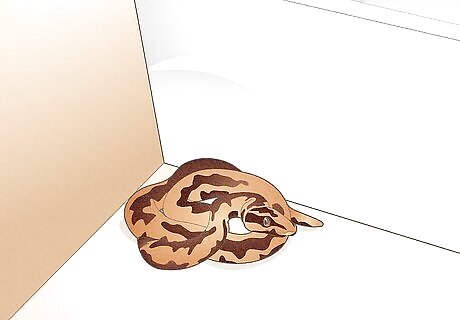
Unfortunately, it’s actually a myth that you can tell if a snake is venomous or not based on its colors. However, you can research the characteristics of snakes that are common in your area so that you can recognize venomous species from non-venomous ones. Always remain cautious if you come across a snake in your house because it can be hard to positively identify certain species. You can look up the characteristics of different snake species in your area on a local environmental services or wildlife services website.
Where do snakes hide in a house?
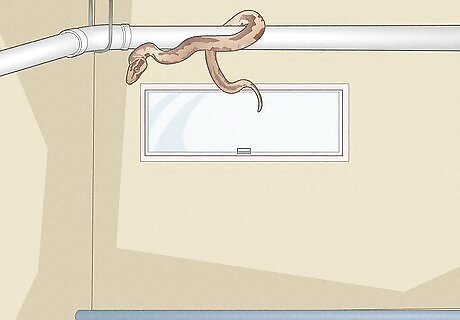
Snakes like to hide in cool, damp, and dark places. For example, they may find their way into a basement or a crawlspace. So, seal any entrances to your basement or crawlspace with diameters that are larger than ⁄4 in (0.64 cm) to stop snakes from entering your home in search of a nice spot to hide! Snakes could also be entering through loose window frames or door sweeps, so make sure those are securely fastened as well. Cover any vents or drains that lead into your home with mesh screening, so that snakes and other pests cannot pass through. For example, critters sometimes find their way into uncovered dryer vents.
What attracts snakes to your house?
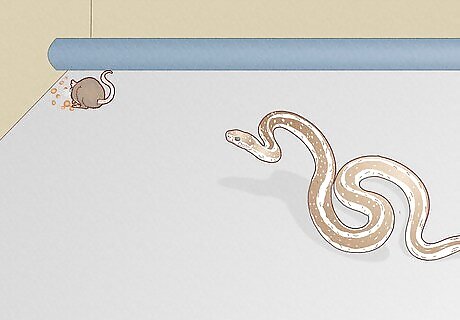
Food sources like rodents and birds make your property appealing to snakes. For starters, remove bird feeders that attract both birds and rodents to your yard if you have a problem with snakes. This reduces the number of small animals coming to your property searching for food, which in turn can attract snakes who prey on them. If you have a mouse or rat problem, kill them with traps or call a pest control company to come deal with the infestation in order to get rid of abundant food sources for snakes. Leaving pet food outside can also attract rodents. Cover up your pets’ food when they aren't eating or bring the food inside where pests can’t get to it. Leaving garbage outside is another thing that attracts pests. Take your trash out as close to collection time as possible and keep it in well-sealed bins to avoid this.
How can you keep snakes off your property?
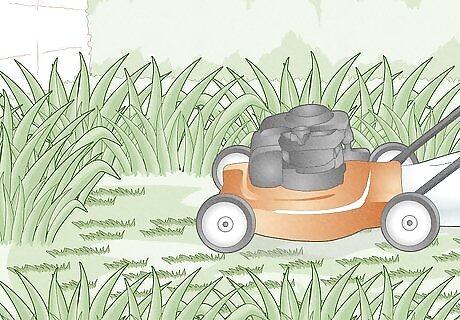
Try to eliminate hiding places from your yard. Keep your grass trimmed and your landscaping maintained to reduce the appeal of your property to snakes. Use mortared stones for rock walls instead of freely stacked stones, as snakes may hide within gaps in the walls. Also, try not to keep large piles of wood or yard debris where snakes might hide on your property. You can also prevent snakes from entering your yard by building a snake fence. Stretch plastic fabric or steel mesh between fence posts to create a surface that snakes can’t climb. If you're concerned about your children or pets, you can build a small fenced-off area for them to play in, minimizing the risk of them coming across a snake.



















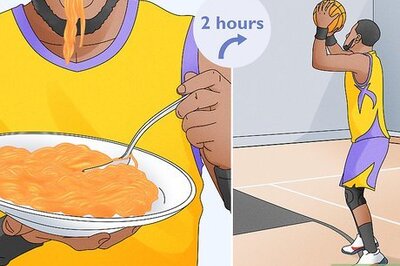
Comments
0 comment